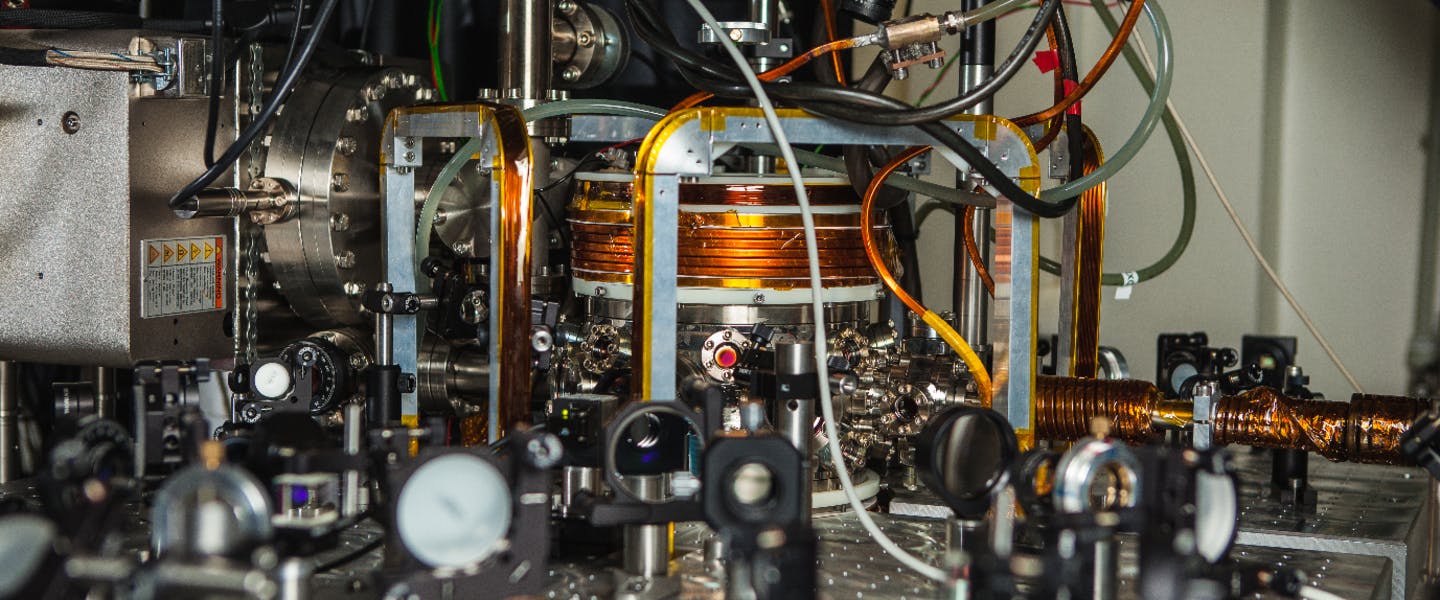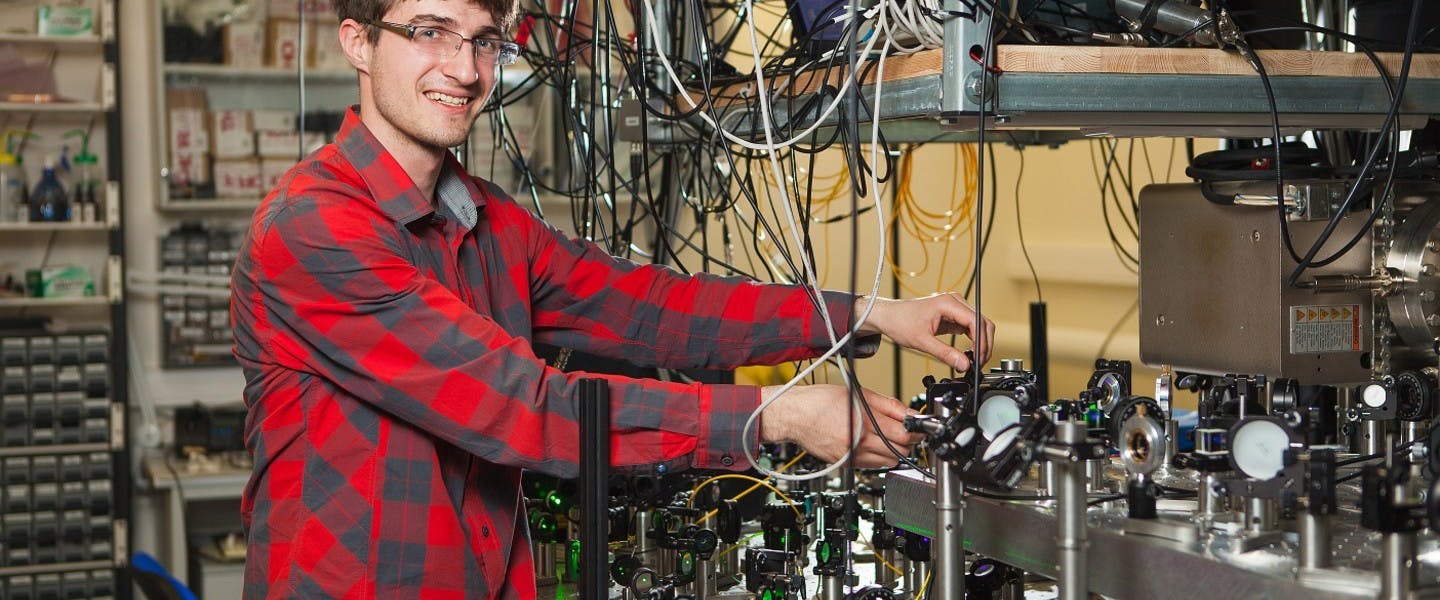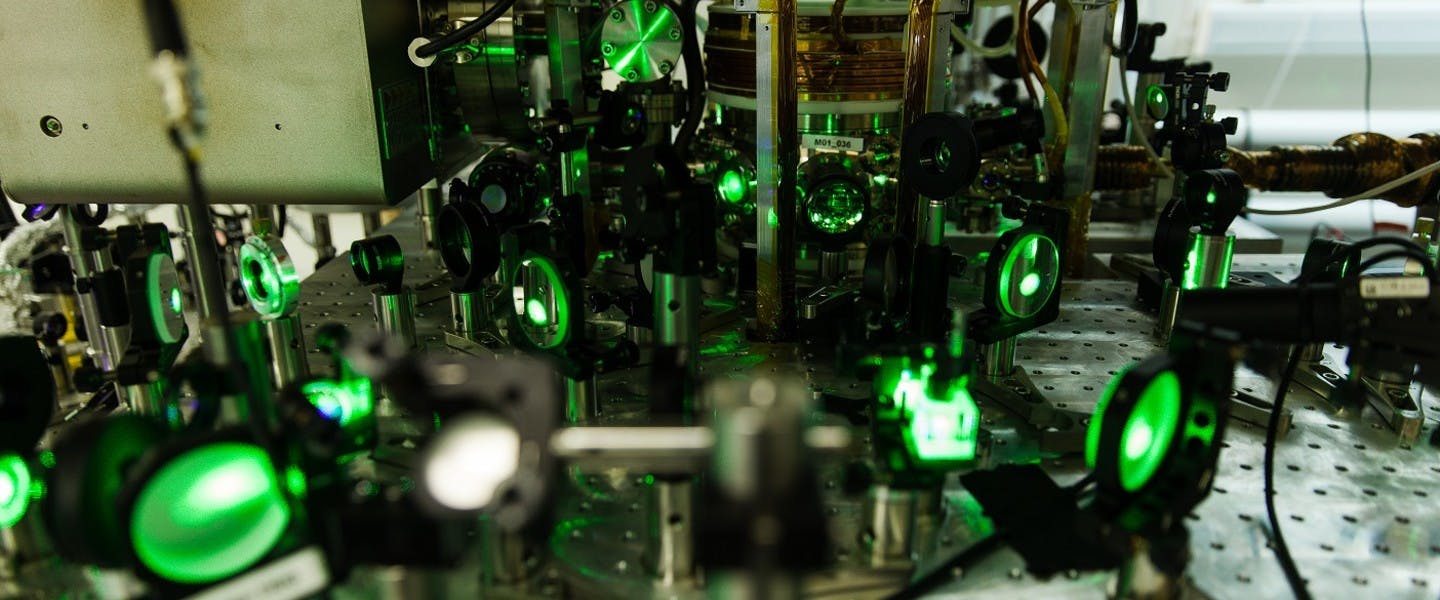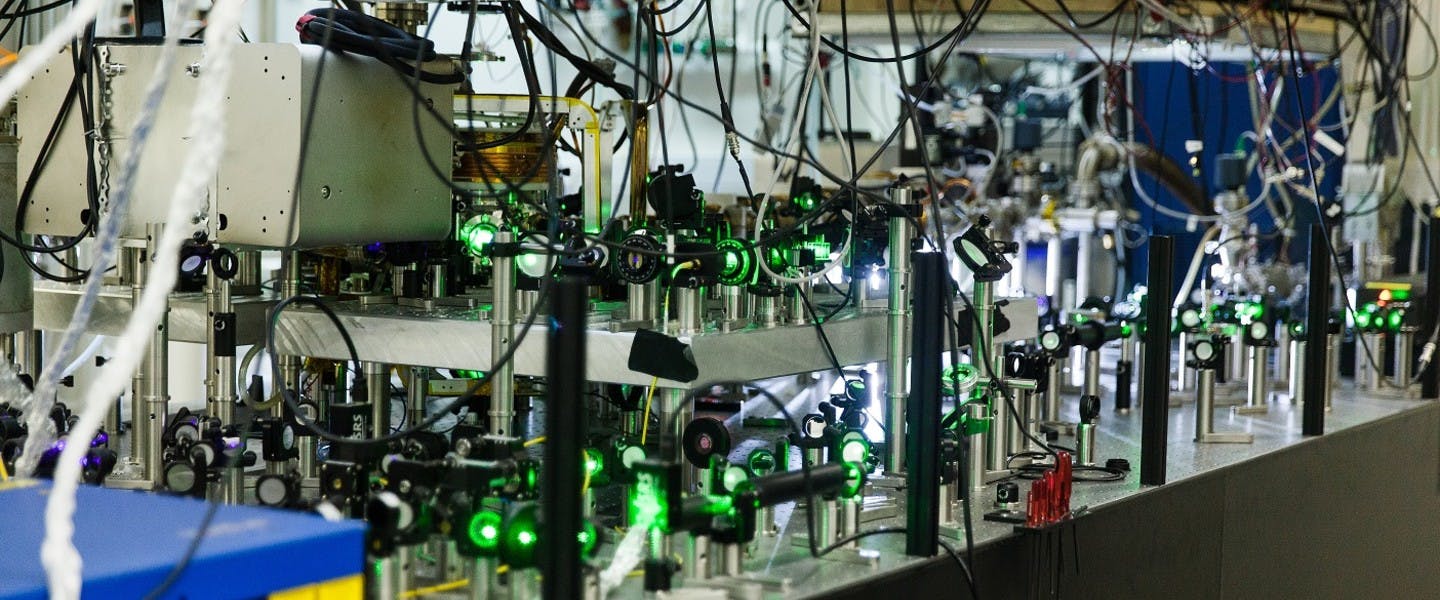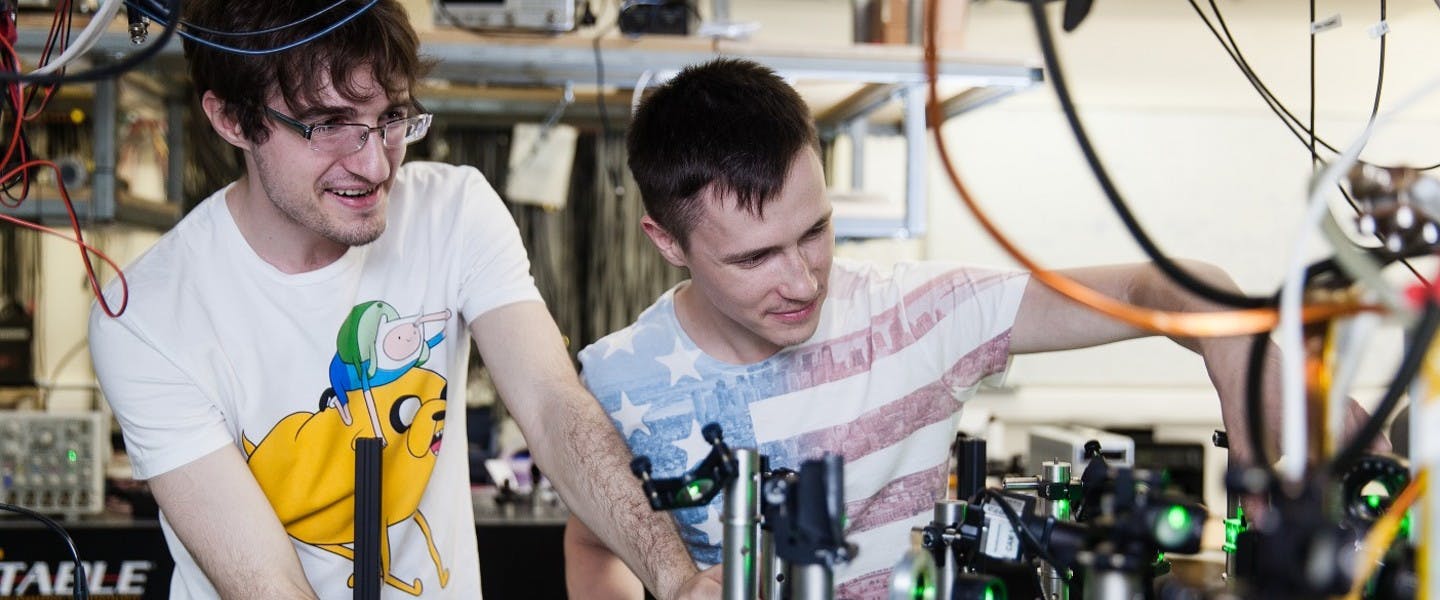Our website uses cookies to manage some features and to show you news and announces in selected language. By clicking on OK button, you accept the use of cookies.
Group of
Quantum Simulators and Integrated Photonics
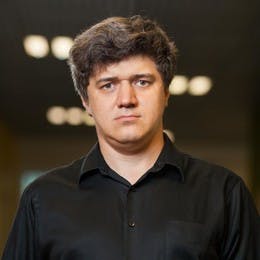
Alexey Akimov
Principal investigator. RQC Scientific Director
Group publications
About the Group
Thulium (Tm) atom is a good candidate for quantum simulation due to high orbital momentum in the ground state allowing to investigate dipole-dipole interactions and to observe Feshbach resonances in a low magnetic field
The group was founded in 2013. The research directions are laser cooling and quantum simulations with thulium atoms; integrated solid state quantum circuits (including development of integrated detectors); integrated fiber systems of quantum logic with single atoms. The major field of our research is quantum simulation – the method of building a controllable quantum system to model a real hard to compute on a classical computer quantum system. Ultracold atomic ensemble localized in optical lattice is convenient platform for quantum simulations. A wide variety of simulation applications is promising: understanding of high-temperature superconductivity, the investigation of topological quantum matter; observation and control of quantum matter at the level of individual atoms; the exploration of fundamental phenomena in statistical physics. Thus, quantum simulation is a prospective approach to investigation of complex quantum systems.
The group is currently working on evaporative cooling of an ensemble of spin-polarized thulium atoms, studying collisions in such an ensemble and controlling the interaction between atoms with the help of Feshbach resonances and controlling the internal states of the atom. The group is also working on the creation of fiber-integrated single-photon sources and quantum keys.
Research Areas
- 1
Laser cooling of Tm atoms - 2
Integrated solid-state quantum circuits (including the development of integrated detectors)
Members
Anna Zykova Project Manager
Vladimir Khlebnikov Senior Researcher
Polina Trofimova Junior Researcher
Ivan Cojocaru Senior Researcher
Vadim Sorokin Researcher
Pavel Aksentsev Junior Researcher
Alexander Kozodaev Intern researcher
Arjuna Rudnev Junior Researcher
Svyatoslav Drofa Research Fellow
Sergey Kuzmin Intern researcher
Kirill Frolov Intern researcher
Ivan Pyrkh Research Associate
Davlet Kumpilov Senior Researcher
Yevgeny Primak Junior Researcher
Vladislav Tsyganok Deputy Head of the laboratory
Daniil Pershin Senior Researcher
Polina Vilyuzhanina Junior Researcher
Airat Ibrahimov Intern researcher
History
2013 Optical table was installed in the prospective RQC lab at Skolkovo
Start of work in the new RQC lab space
Denis Sukachev defended his PhD thesis
Zeeman slower was built
2014 Margaret Pavlovich comes and takes over complete experiment
First magneto-optical trap
2015 Green laser locks to high-Q cavity
Green MOT achieved Light assisted collisions in Tm measured for the first time
2016 Infeed of Tm atoms in optical dipole trap
Low field Feshbach resonances are detected
2017 Article “Light-assisted collisions in ultracold Tm atoms” publication
Full controlled ODT is realized
Polarized cold cloud of thulium atoms is achieved
2018 A detailed study of the Feshbach resonances of polarized atoms in a wide temperature range

